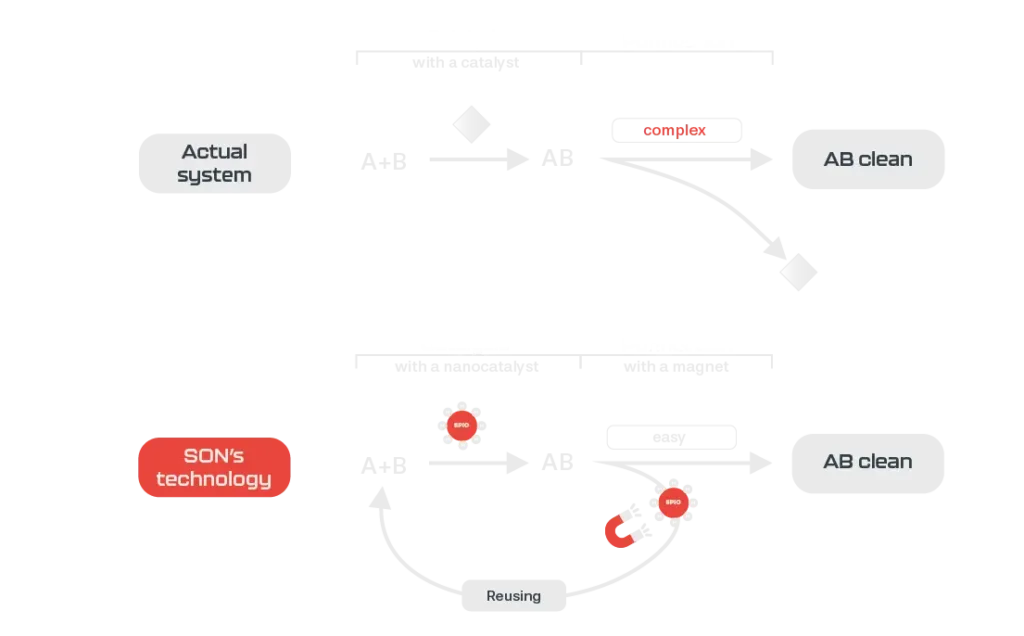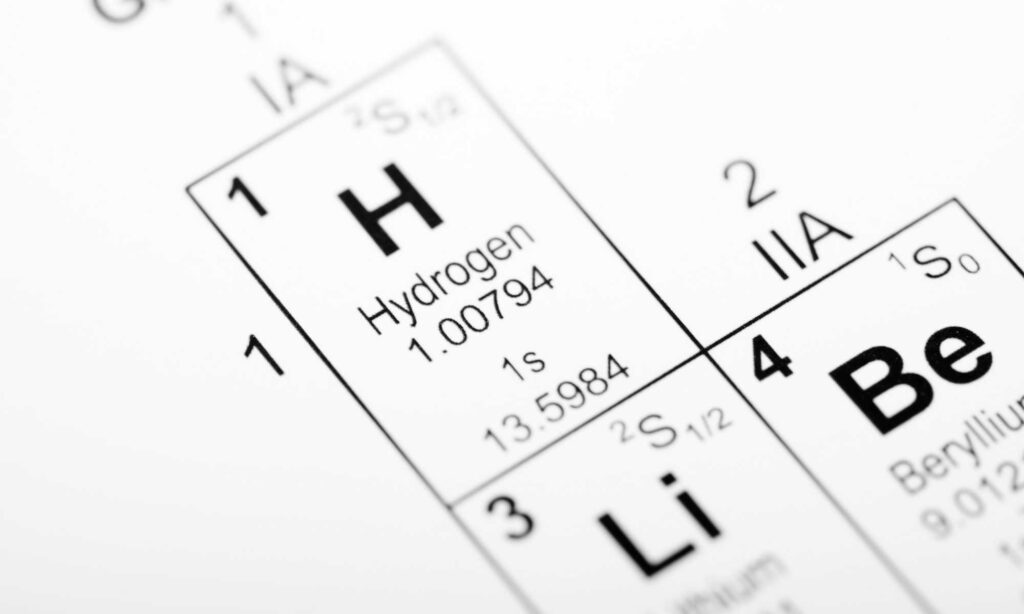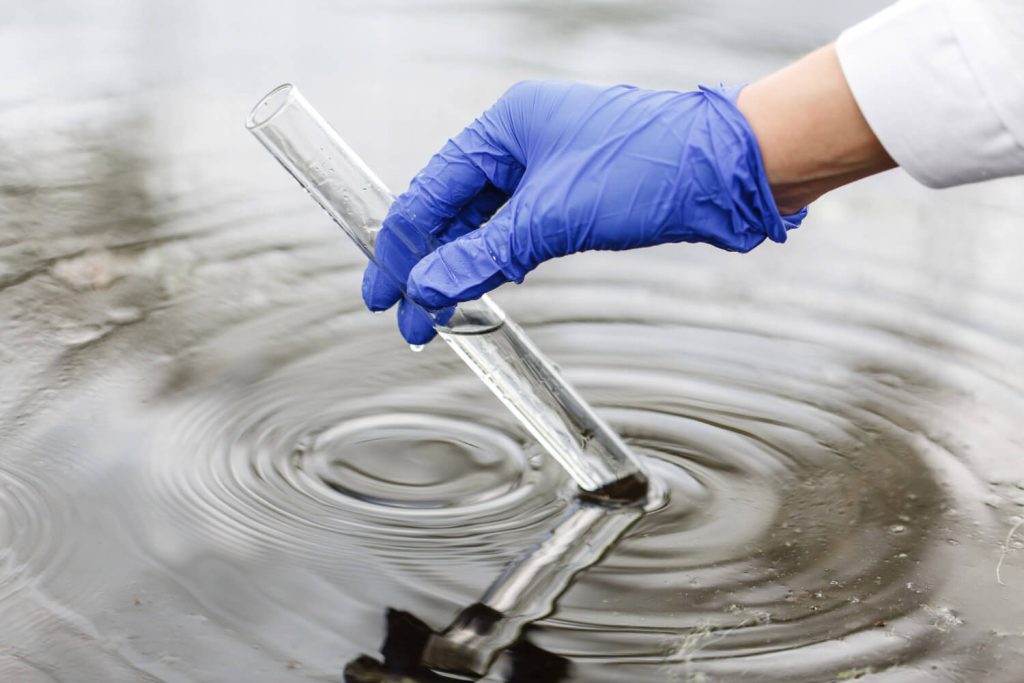Areas of application
Catalysis
SON’s nanocatalysts represent a major asset in industrial applications: they allow significant gains in efficiency, are easier to use, and produce less waste.
SON supplies all kinds of nanoparticles, from basic to extremely complex.
Our range of multifunctional nanoparticles allows researchers in fine chemistry to combine the molecules they want and make much faster progress.

Clean energy
Decarbonising growth is a significant challenge facing our economies.
Hydrogen is currently one of the most promising energy solutions. Yet properly harnessing this energy raises a number of questions and concerns, particularly regarding its storage and transport.
Which is precisely why SON developed a safe solution for the production of hydrogen that mitigates energy requirements in the production process.

Environmental remediation
The multifunctional nature of our SPIOs allows us to provide solutions for water and wastewater treatment that are more effective than any other available in this field.
By working alongside industrial players and municipalities, as well as with water treatment specialists and towns and cities, we are able to contribute to a more sustainable future.

Nanomedicine

Defense


